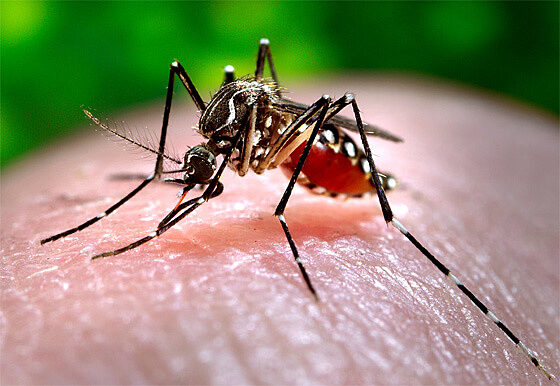A Q&A about the Zika virus with Ashley Brown, Ph.D.

Ashley Brown, Ph.D., an assistant professor of medicine with the UF Health Institute for Therapeutic Innovation, was recently awarded a $1.14 million grant by the Florida Department of Health for the Zika Research Initiative Program at the University of Florida. The grant was part of a larger $25 million grant approved by Gov. Rick Scott for Zika virus vaccine research and development.
Brown is the program director of the antiviral pharmacodynamics laboratory in the UF College of Medicine’s department of medicine.
Identifying antiviral therapies for the treatment of Zika virus
Why is this grant important?
Zika is a mosquito-borne virus belonging to the family Flaviviridae, which includes other clinically significant viral pathogens, such as dengue virus and hepatitis C virus. The Zika virus has become an important public health concern due to its emergence and rapid spread into the Americas, resulting in major outbreaks, and the devastating consequences associated with infection during pregnancy, including fetal microcephaly and brain damage. In Florida alone there have been more than 1,300 confirmed infections, from travel-related and locally spread incidences, to date. Of those confirmed infections, more than 250 involve pregnant women, highlighting the seriousness of the Zika virus threat to the United States.
What is the focus of the study?
There is currently no vaccine or antiviral therapy licensed for the treatment or prevention of Zika virus, or ZIKV, demonstrating the pressing medical need for therapeutic options for this viral disease. The research proposed in this project aims to address this serious unmet need by identifying effective antiviral therapies for ZIKV infections.
What strategy are you using?
Our research strategy is to explore the efficacy of anti-infective agents that are already approved for clinical use, as drug repurposing is an efficient and cost-effective method to rapidly accelerate drug development. We will evaluate different drugs, all which have demonstrated antiviral potential against ZIKV, as part of our investigation. The antiviral activity of each agent will be examined against two clinically relevant ZIKV strains, one of South American lineage and one of African lineage. This will be done using three different cell lines, as drug effectiveness can be influenced by the host cells employed for drug screening. These drugs, however, are not used in women who are pregnant. Through this research, we hope to prevent the spread of ZIKV infections via sexual transmission, targeting men and non-pregnant women.
What method will you test?
For antiviral therapy to be successful in humans, one must first identify how much, and how often, each compound must be taken, or given, to maximize antiviral activity. The overall goal is to design innovative dosage regimens for each compound as single-agent and combination therapy against ZIKV that will inhibit viral replication and minimize emergence of drug-resistant viruses. We will use a state-of-the-art model system to simulate fluctuating drug concentrations that are observed in a person after administration of a drug due to biological processes such as absorption, metabolism and excretion. This allows us to evaluate the impact of different doses and dosing intervals on the antiviral activity of each agent, for instance, pointing to whether it’s more effective to administer the total daily dose once a day versus half the daily dose twice a day. Novel mechanism-based mathematical models will be developed and fit to these data to identify the regimens predicted to yield the best therapeutic outcomes in humans. These rationally designed regimens will have the greatest likelihood of clinical success. This work can be directly translated to the design of future clinical trials.
Who is involved?
This study is being done in collaboration with two faculty members at the University of Florida. Jürgen Bulitta, Ph.D., an associate professor in the UF College of Pharmacy, is supporting the grant by generating the novel mechanism-based mathematical models described earlier. John Lednicky, Ph.D., an associate professor and associate chair for the department of environmental and global health in the UF College of Public Health and Health Professions, will support the grant by characterizing the Zika viruses that are harvested during therapy and evaluating the viruses for mutations that arise during treatment. If mutations are detected, these mutant viruses will be evaluated for changes in susceptibility to the drug.